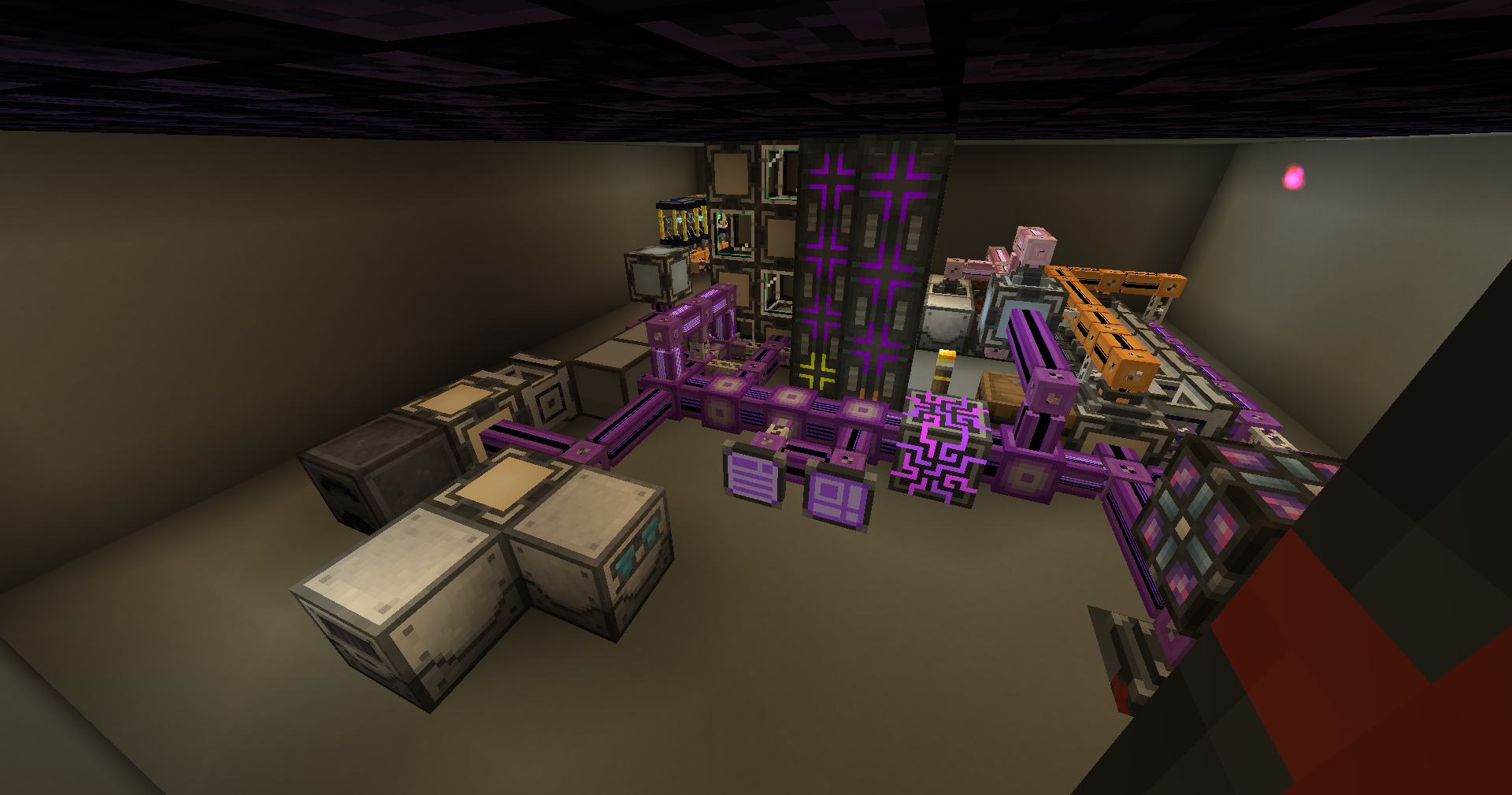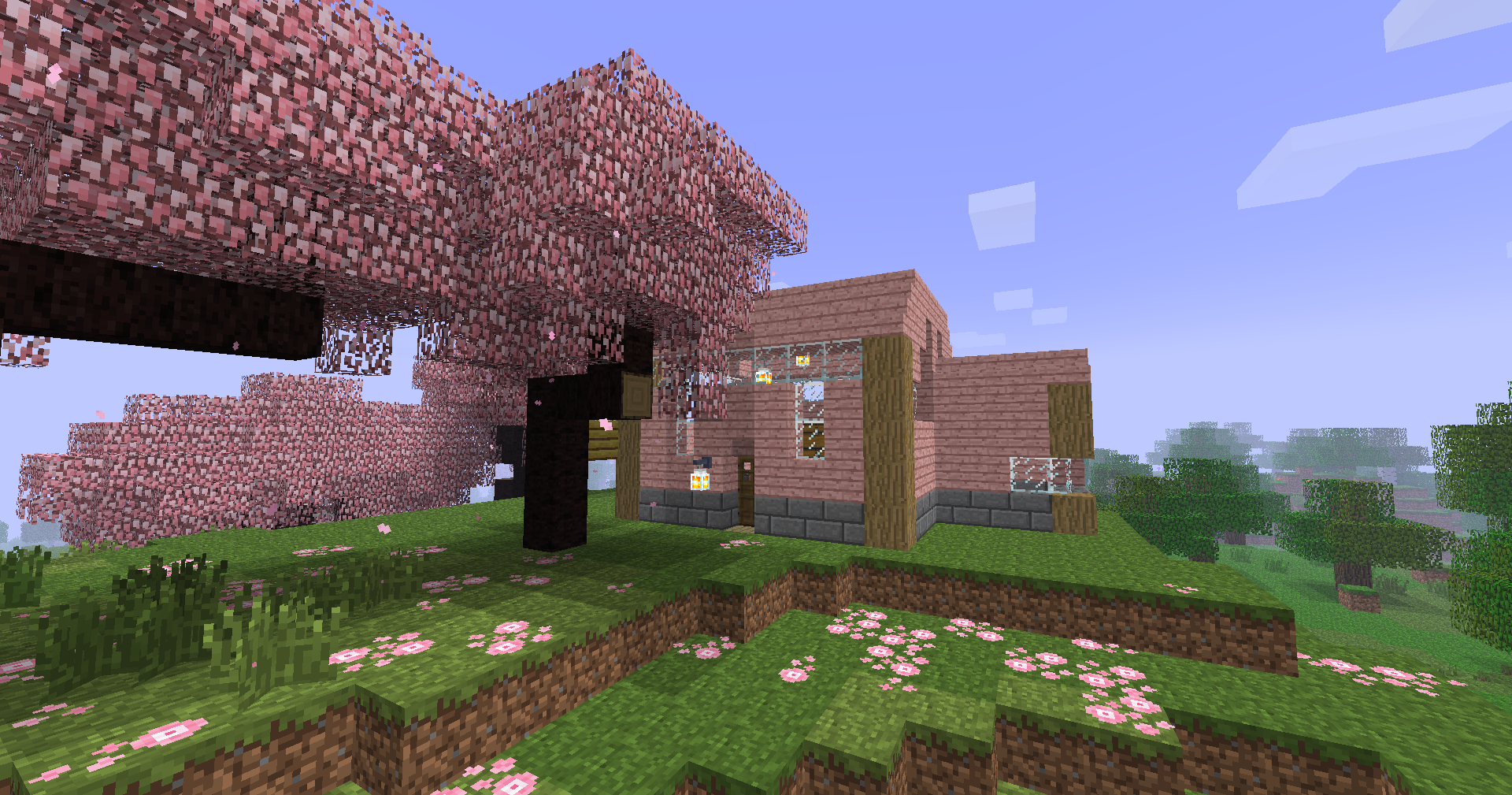Yesterday, I finished my post about the personal web with a joke that maybe we're just drawn to it because of that classy late '90s aesthetic. Because of nostalgia. I've actually been thinking about that more since then. Nostalgia is this beautiful, bittersweet feeling. It's something we tend to see as indulgent, not useful. It becomes appropriate for decisions about entertainment but not big decisions that guide our lives or the path of society.
I've been playing Minecraft lately. I love the game. I've been playing since my sister introduced it to me circa 2009. I remember at that time furnaces didn't work, and the best tools you could get were stone. It was still incredible. Exploring the random generation and building with creative freedom outshined modern day survival elements. Many people long for the old days of Minecraft, what's been called the Golden Age. Different people play different versions of the game's alpha and beta stages, depending on their preferences, but the biggest group focuses on Beta 1.7.3. This was the last update before big changes like sprinting, hunger, and the overhauling of world generation.

I do think vanilla, modern Minecraft is a good game, but I prefer other options. I usually play it heavily modded. Lately I've been playing two versions. The first might be considered as far removed from the simplicity of beta Minecraft as possible. The antithesis of this simplicity is probably huge kitchen sink modpacks like All the Mods, with hundreds of mods that add overlapping features with the expectation that you'll explore each of them in turn and find unique ways to combine their advantages. Energy generation, crafting automation, epic boss fights, magical spells and trinkets. There's no end to what's possible. What I've been playing is a modpack called Project Architect 2. It doesn't have quite as many mods or quite as many super complicated interactions, but has one thing that makes it, perhaps, even more the opposite end of the spectrum as Golden Age Minecraft: Project E. With this mod, originally called Equivalent Exchange, many materials can be reduced to a number representing their value and rarity. These numbers add up to a global bank account that you can draw from to produce any other block, tool, or resource, at a respective cost to the bank account. It is so powerful as to completely define the playthrough.
On the other end of the spectrum, I've been playing something more nostalgic. I played some beta 1.7.3, but I was missing a lot of features the modern game has. That's when I found the Reminiscence modpack. It doesn't update old Minecraft to have more modern features. It downgrades modern Minecraft to take away some of its newer features. There's no hunger or sprinting, the old world regeneration is restored, and that eerie fog in the distance makes a return. At the same time, most of the blocks, monsters, dimensions, and tools added in the last decade or so are present. With, of course, the artwork and textures redesigned for that nostalgic feel. I'm having a lot of fun with it!

These different versions investigate different questions about possibility. "What could Minecraft be?" ask the tech and magic modded modern versions. "What could Minecraft have been?" ask the old school restructured versions.
No one would deny that some things about the past were better than they are today. No one would deny that nostalgia can lead us to view the past in a distorted way. But maybe these two features of our retrospection get muddled together more than we realize. Sometimes we think the past was better because of nostalgia. Sometimes we are nostalgic because things actually were better; it emerges as a feeling, but it can be justified with fact.
The idea that the future holds promise through technological and social innovation is new. For most of human history, people thought society was declining. The great days were the ancient days, the time of myths and legends, and each new tomorrow was just getting worse and worse. Improvements were too slow to be perceivable, primarily benefitted the most wealthy and powerful, and were tenuous, likely to be erased by the next war or famine. One might even say that for most of human history nostalgia ruled over hope.
It's fun to investigate these ideas in Minecraft. Was beta Minecraft better than modern Minecraft? Reasonable people agree: it's a matter of taste. That doesn't mean it's totally arbitrary. There are good, logical arguments about what features of the old game make it play differently, and why that might be desirable. But in the end, it's the 'oughts,' our definition of what makes something better, that determines our conclusion.
It's less fun to tackle nostalgia about the real world and big issues. Today we've got both real evidence of a decline, like how difficult it is for young people to financially succeed now compared to several years ago, and problematic reactionary views, like the efforts to cling to a society dominated by white, non-immigrant, Christian conservatives. If we apply the above hypothesis that nostalgia gets blended with real evidence of a better past, it becomes really hard to disentangle them. It becomes harder to explain which views of the past are problematic, which are valuable, and which are just wistful remembrances, and therefore neutral. How do we hold these conversations?
Thank you for reading this post to the end. I mostly just wanted to share what I've been playing in Minecraft and tie it in to some thoughts about nostalgia. It's very liberating to just write whatever I want. I'm thinking about setting up a guestbook, comments section, or presence on Mastodon so I can interact with my hypothetical readers.
Sincerely,
SunWisp